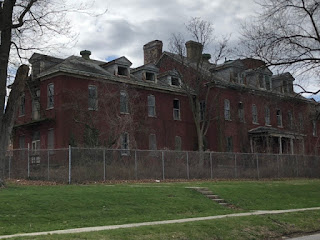The other day, Hal Ruzal and I exchanged text messages and e-mails. He is a co-founder and former chief mechanic of Bicycle Habitat. He also turned me on to Mercian bikes.
Now he’s living in New Mexico. He told me he’s riding every day but “there’s nowhere to go at night.” That’s not a surprise, given that the same situation pertains here in New York, which has more restaurants, bars, clubs and the like than just about anyplace else on Earth.
Anyway, I’d shared that Habitat is closed, even though bike shops are permitted to remain open. He said Charlie, the owner, was making a “wise move.” I agreed, though I am sad about it.
Bike shops are vital now because cycling is one of the few ways one can go to work—or simply get out—while maintaining “social distance.” On the other hand, some shops—such as Habitat’s Chelsea branch, are tight spaces in which it would be difficult, if not impossible, to accommodate more than one or two customers at a time, especially if they’re bringing bikes in for repairs or overhauls.
Also, another characteristic Habitat Chelsea shares with other shops—including the ones in which I worked—is that mechanic’s areas are extremely tight: Mechanics, as often as not, work at arm’s length, or less, from each other.
In that sense, Habitat and other bike shops are like other vital businesses such as grocery stores: Their customers can distance themselves from each other, but their workers can’t.
Now he’s living in New Mexico. He told me he’s riding every day but “there’s nowhere to go at night.” That’s not a surprise, given that the same situation pertains here in New York, which has more restaurants, bars, clubs and the like than just about anyplace else on Earth.
Anyway, I’d shared that Habitat is closed, even though bike shops are permitted to remain open. He said Charlie, the owner, was making a “wise move.” I agreed, though I am sad about it.
Bike shops are vital now because cycling is one of the few ways one can go to work—or simply get out—while maintaining “social distance.” On the other hand, some shops—such as Habitat’s Chelsea branch, are tight spaces in which it would be difficult, if not impossible, to accommodate more than one or two customers at a time, especially if they’re bringing bikes in for repairs or overhauls.
Also, another characteristic Habitat Chelsea shares with other shops—including the ones in which I worked—is that mechanic’s areas are extremely tight: Mechanics, as often as not, work at arm’s length, or less, from each other.
In that sense, Habitat and other bike shops are like other vital businesses such as grocery stores: Their customers can distance themselves from each other, but their workers can’t.













